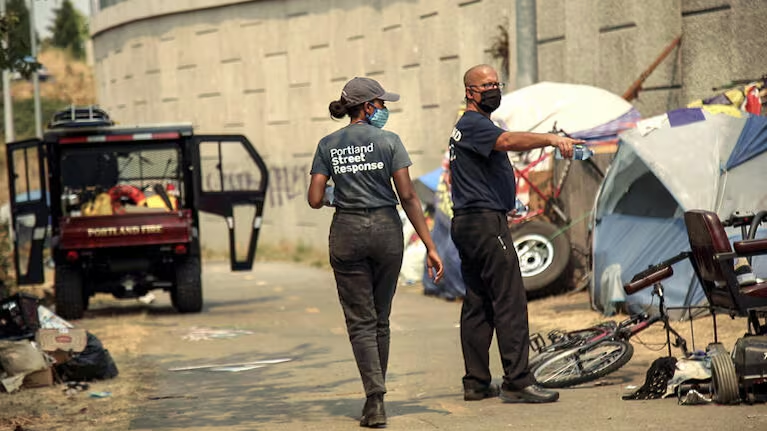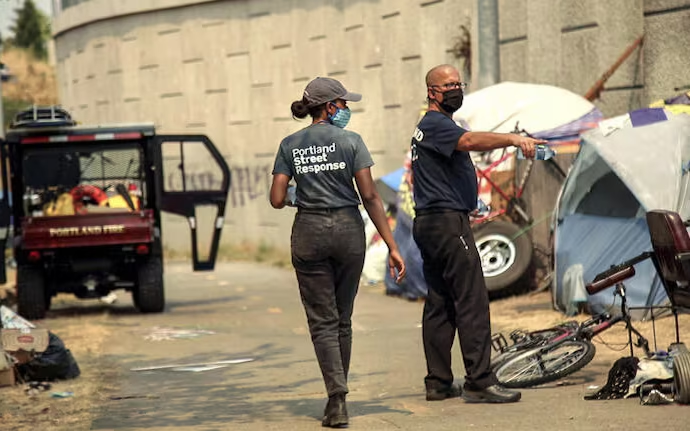On a quiet street in Portland, Oregon, a woman in crisis paces back and forth, shouting incoherently. A few years ago, such a call would have automatically dispatched police officers, raising the risk of escalation, confrontation, or worse. Today, thanks to the city’s expanded “Street Response” program, it’s a different picture. Within minutes, a van
On a quiet street in Portland, Oregon, a woman in crisis paces back and forth, shouting incoherently. A few years ago, such a call would have automatically dispatched police officers, raising the risk of escalation, confrontation, or worse. Today, thanks to the city’s expanded “Street Response” program, it’s a different picture. Within minutes, a van arrives carrying a team not of officers, but of trained mental health workers and paramedics. They speak softly, approach slowly, and offer the woman water before connecting her with a local clinic. The situation ends peacefully no arrests, no force, no trauma. This is the essence of Portland’s bold experiment in reimagining public safety. Originally launched as a pilot program, Portland Street Response has grown into a citywide initiative responding to thousands of calls that once would have fallen to police. Staffed by mental health professionals, EMTs, and peer support specialists, the teams handle everything from suicide interventions to substance use episodes to basic welfare checks. By focusing on care rather than punishment, the program relieves pressure on police while giving residents in crisis a chance at recovery rather than a criminal record.

Early results are striking. A city audit found that Street Response resolved over 90 percent of cases without involving police, significantly reducing arrests and hospitalizations. Residents have praised the teams for their compassion, with one man saying, “They treated me like a person, not a problem.” Other cities from Denver to San Francisco are studying Portland’s model, hoping to replicate its success. Of course, challenges remain. Funding is uncertain, and scaling the program requires more trained professionals than Portland currently has. But the broader lesson is undeniable: communities can respond to crises in ways that de-escalate rather than inflame. In a nation grappling with how to reform public safety, Portland’s Street Response offers a glimpse of what is possible when empathy becomes the first response, not the last resort.

















Leave a Comment
Your email address will not be published. Required fields are marked with *